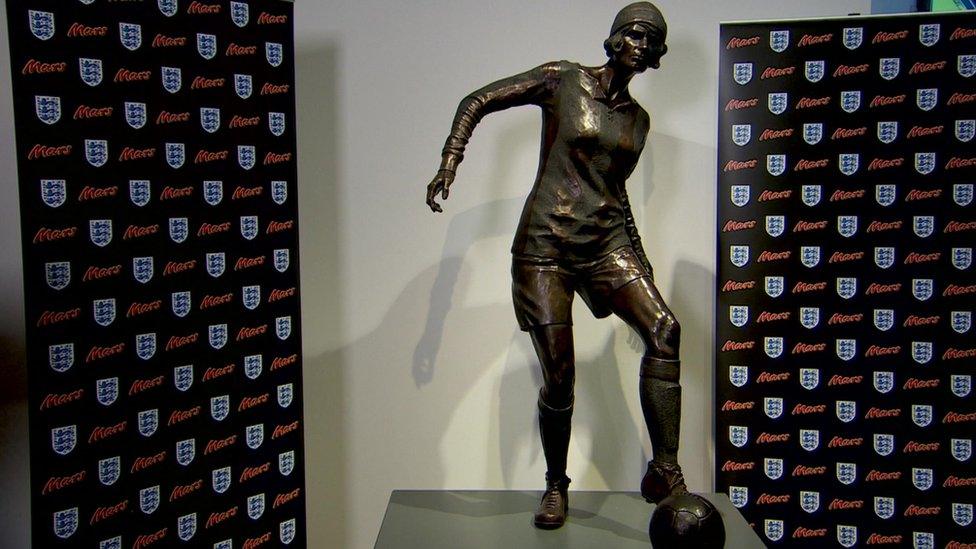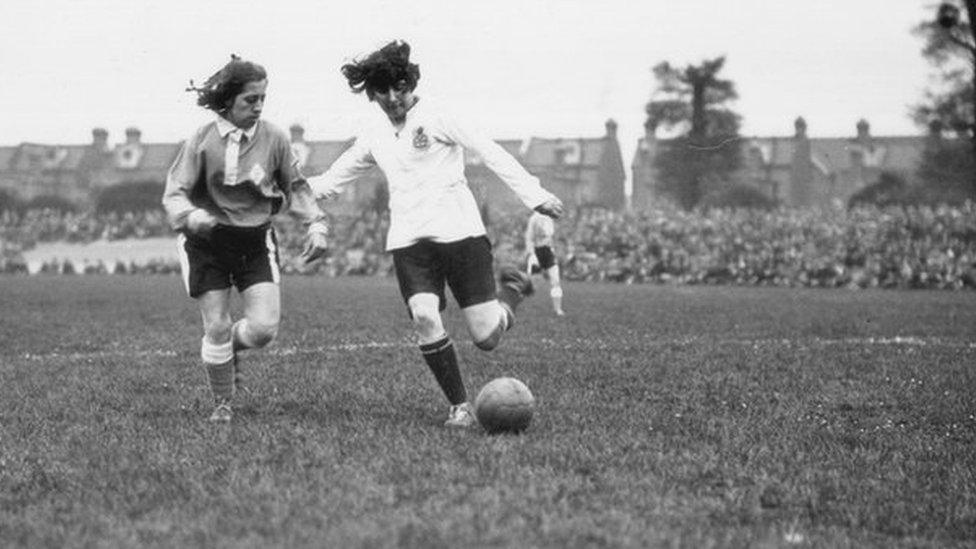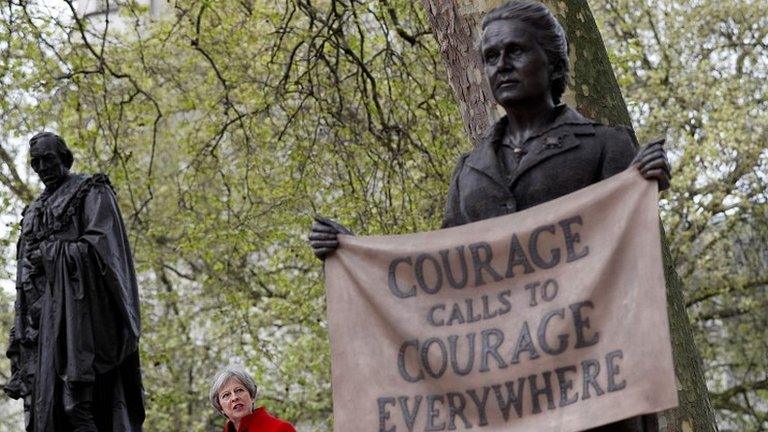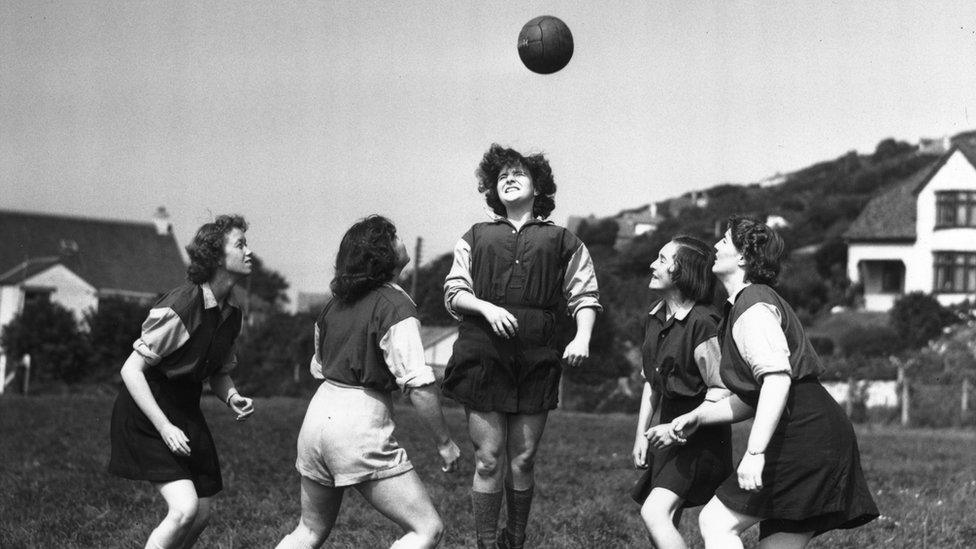Lily Parr: First statue for woman footballer unveiled in Manchester
- Published

The Lily Parr statue - the first female football statue in England - unveiled at the National Football Museum
One of the early stars of English women's football has become the first female player to be commemorated with a statue.
A life-size bronze sculpture of Lily Parr, who played professionally in the 1920s, was unveiled at the National Football Museum in Manchester.
Parr, who died in 1978 aged 73, was the first woman to feature in the museum's Football Hall of Fame in 2002.
The Football Association said there were 110 statues of male players.
Her cousin June Patten, who unveiled the statue, said: "She was wonderful person. I'm sorry to say I never saw her play and that is a big regret.
"Otherwise she was just 'Our Lil'. It did not register with me at the time that she was such a marvellous footballer."
Allow X content?
This article contains content provided by X. We ask for your permission before anything is loaded, as they may be using cookies and other technologies. You may want to read X’s cookie policy, external and privacy policy, external before accepting. To view this content choose ‘accept and continue’.

Ms Patten, who is in her 80s, said her cousin "didn't suffer fools gladly" and it was well known in the family that she "had a kick like a mule".
Tim Desmond, the museum's chief executive, described the statue by sculptor Hannah Stewart as "iconic and pioneering".
Former England and Arsenal captain Faye White added: "It's important to see where the game has come from and what characters such as Lily did for the game in their time."

Fact file: Lily Parr

Lily Parr started her career as a fullback before becoming a prolific goal scorer
Played in the first recognised women's international match between England and France when Lancashire team Dick, Kerr Ladies FC, representing England, won 4-0 in 1920
Along with three other members of the team, she also beat the American Women's Olympic team in a relay race in 1922
Scored 986 goals in a 32-year career that featured spells with St Helens Ladies and Preston Ladies
Source: National Football Museum

Born in St Helens, Parr began her career at St Helens Ladies in 1919 and a year later joined Dick, Kerr Ladies, the Preston-based team founded by the Dick, Kerr & Co locomotive factory.
The 6ft chain-smoker, a fact that led to a rumour that her wages were supplemented by packets of Woodbine cigarettes, started out as a full-back but later became a goal-scoring left winger.
She netted 108 goals in her first season with Dick, Kerr Ladies and was known for her powerful left foot shot.
Off the field, Parr trained as a nurse and worked in Preston's Whittingham psychiatric hospital.
- Published9 May 2019

- Published24 April 2018

- Published19 July 2017

- Published6 March 2018
